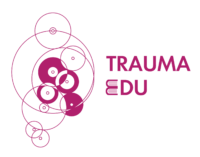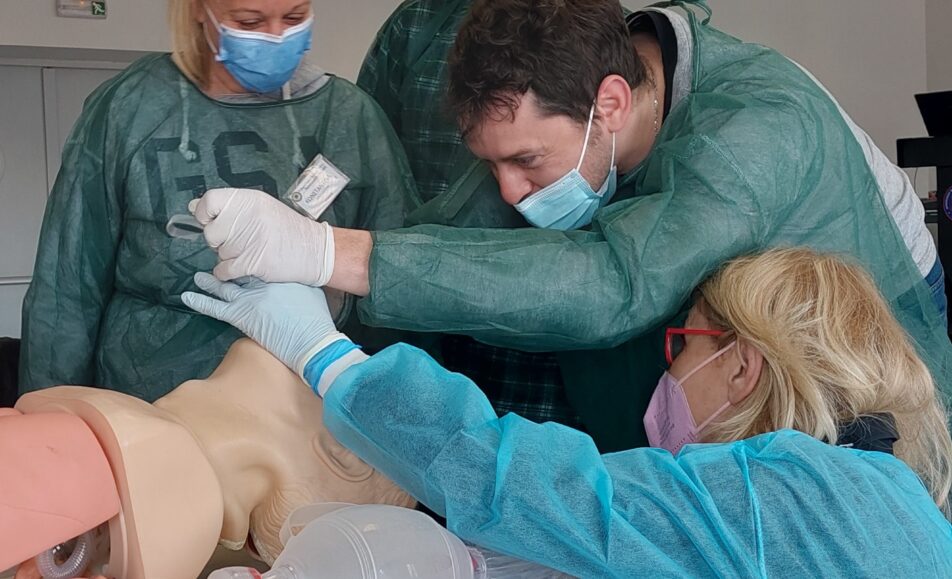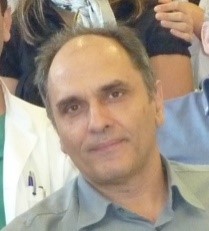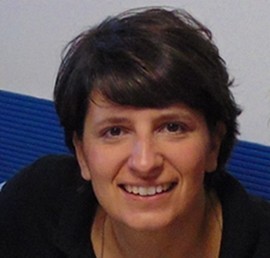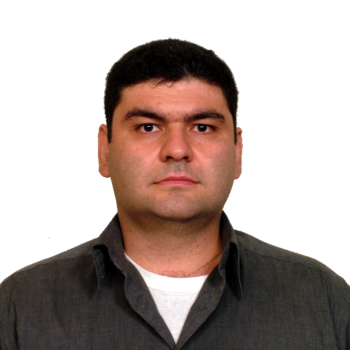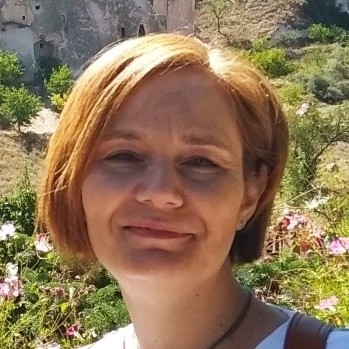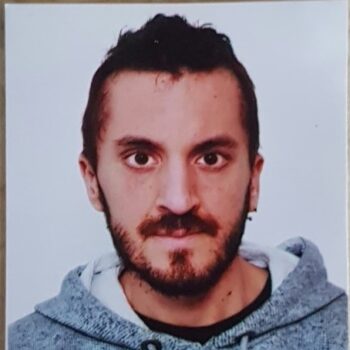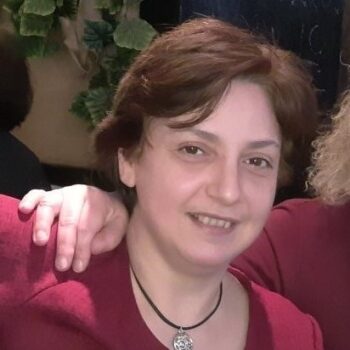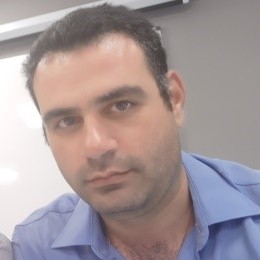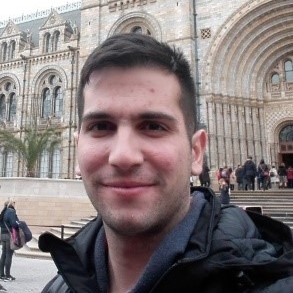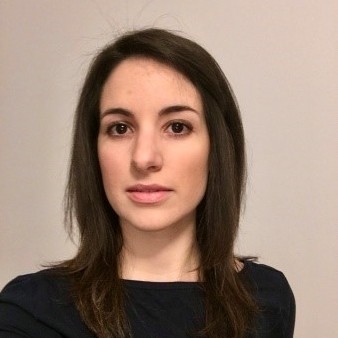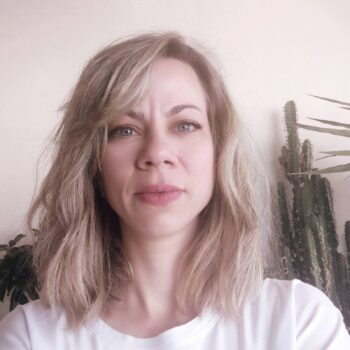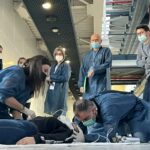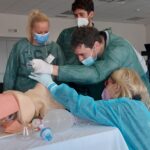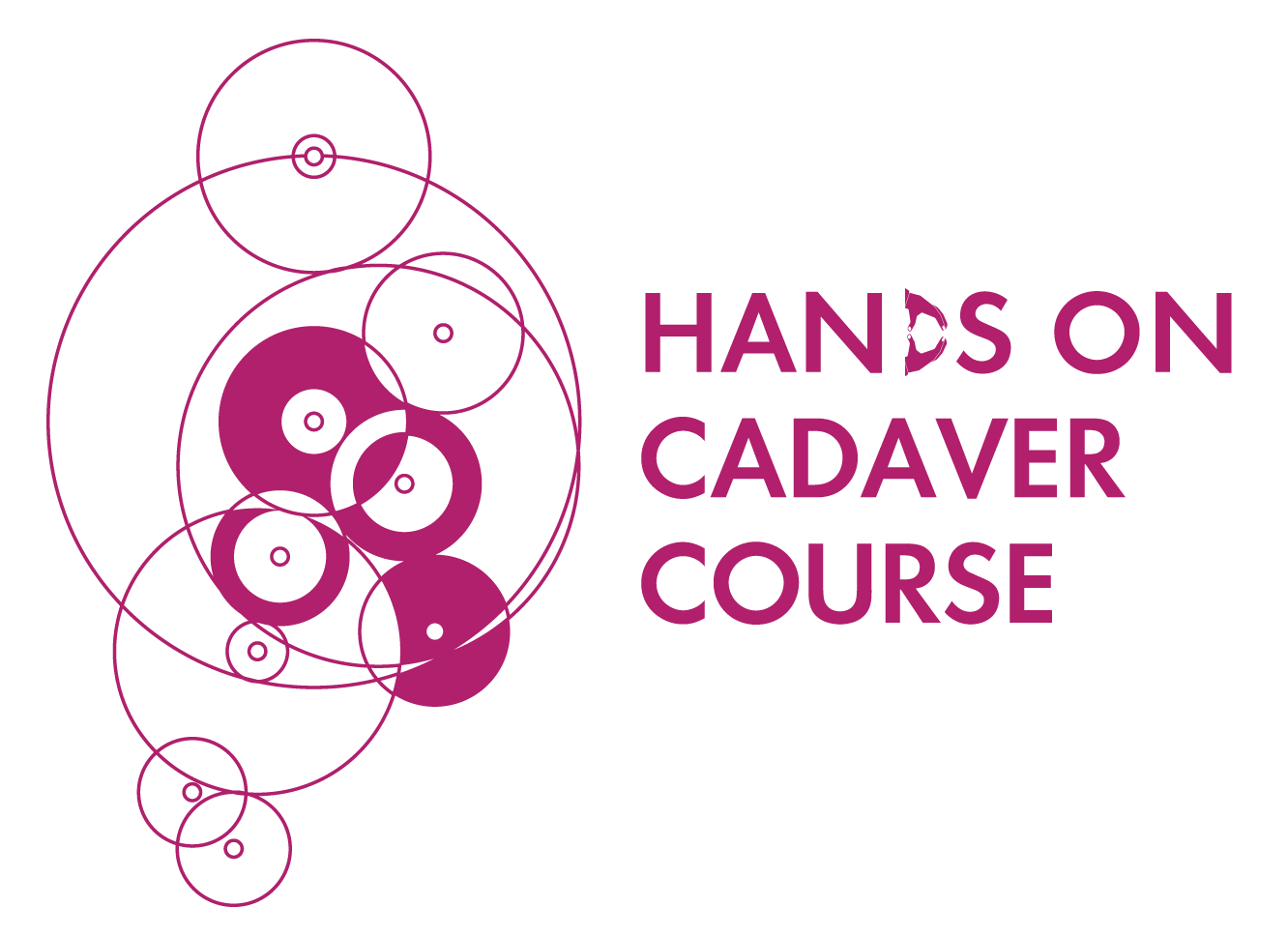Advanced Trauma Care for Nurses
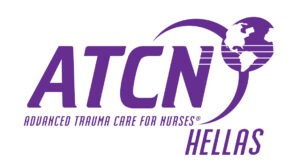
Context - Historical overview
The Advanced Trauma Care for Nurses (ATCN®) program is aimed at nurses who wish to be trained and certified in casualty life support. It is taught in conjunction with the American College of Surgeons (ACS) Advanced Trauma Life Support (ATLS®) training program for physicians, and it can also be taught on its own if there is no possibility of simultaneous teaching with ATLS.
The purpose of the ATCN and ATLS programs is to reduce predictable and unjust deaths and disabilities from trauma. Their distinguishing feature is that they present a clear and systematic approach to the assessment and treatment of polytrauma. They are important tools for guiding the treatment of injured people in the Emergency Department, Intensive Care Units, as well as for the management of mass casualties. They emphasize the treatment of the patient, especially in the first hour after the injury, referring to his resuscitation, stabilization, reassessment, and transfer, if necessary, to a more specialized medical and nursing unit. The simultaneous training of doctors and nurses helps to develop a common language and a common line in the assessment and treatment of multiple trauma, promotes collaboration and optimizes the outcome.
The ATCN program is under the auspices of the American non-profit organization of nurses dealing with trauma care, the Society of Trauma Nurses (STN). The ATCN material is renewed every 4 years following the new scientific data, in order to incorporate new and perhaps even safer skills.
The ATCN was created in the early 1980s at the Shock Trauma Center in the US. In 1997 STN assumed responsibility for the program and has since offered it as the flagship of its educational initiatives. In 2000 the ATLS Subcommittee of the ACS formally recognized and approved the widespread implementation of ATCN in conjunction with the ATLS program, both in the US and worldwide. In Europe ATCN is taught in 10 countries.
In Greece, in 2017, with the valuable help of the Cypriot ATCN and the Cypriot Emergency and Prehospital Association, the ATCN National Training Center was certified, the founder of which is “Regeneration & Progress” (R&P).
The ATCN program, as well as a set of trauma management training programs, are implemented in accordance with Law 4655/2020 (Government Gazette 16/A31-1-2020), as amended by Law 4702/2020 (Government Gazette 130/A3-7-2020), with an exclusive donation from the Stavros Niarchos Foundation (SNF) in a five-year pilot phase.
Collaborating bodies are the National and Kapodistrian University of Athens (NKUA), the Company of Health Units (AEMY SA), the Ministry of Health and R&P, which has been appointed responsible for the financial management and technical supervision of these programs. After the five years have passed, the financial support continues with resources from the Ministry of Health.
About the seminar
The trainees, in order to prepare properly, receive:
- One month prior to the start of the seminar, the ATLS training manual and the ATCN training manual.
- Forty (40) multiple choice questions that they are asked to answer, in order to help them in their preparation, to understand the philosophy of the program and to assess their level.
ATCN and ATLS have a common theoretical part (13 interactive discussions) and are separated in the practical part, which consists of:
Skill Stations:
- Initial assessment and treatment
- Airway and ventilation management
- Surprise
- Head trauma
- Musculoskeletal, spine & spinal cord trauma
- Pediatric trauma
Discussion in groups:
- Discussion of ATCN multiple choice questions
- Discussion of Screening scenarios
Simulation scenarios for multitrauma assessment and treatment.
The seminar structure promotes critical thinking, collaboration, and a team approach to multitrauma care. Based on the principles of adult education, the training is interactive and delivered by certified trainers. The practical training is carried out either on models (hands on) or on simulated patients and includes dealing with virtual cases.
The written assessment consists of 40 multiple choice questions and is passed if 80% of the questions are answered correctly. The oral assessment concerns the assessment and treatment of a multiple casualty, according to ATCN principles, in a simulated scenario.
Attendance and participation throughout the two-day ATCN training program is mandatory.
Requirements - Necessary supporting documents
For students:
- Photo (ID card type)
- Certificate of analytical score or certificate of completion of studies.
- Responsible Declaration of Law 1599 or from gov.gr, TO Tra uma Edu, where it will state:
- I am a student in the 8th semester and have no due courses from previous years
- I am a graduate student and have up to two due courses
- I am a graduate student in a trauma-related Graduate Program and in particular I am attending PMS (PMS title)
For graduates in their 1st year of graduation:
- Photo of a person (ID type)
- Photocopy of degree and
- Completed Responsible Declaration of Law 1599 or from gov.gr, TO Trauma Edu, where it will be stated that they do not work as nurses.
Cancellation Policy
Seat Cancellation and Symbolic Subscription Refunds can be made up to 60 days before the start date of the seminar and if the manuals have not been received by the interested party.
In the event of a request to postpone the participation of the interested party, for an important reason, from a seminar that has already been registered, it is possible to attend a subsequent one based on the dates that will be informed by the Trauma Edu management team.
If the interested party postpones his participation for two (2), he loses the right to the subsidy.
Seminars
The following are the scheduled ATCN training programs. Please select a seminar to visit the relevant page with detailed information about the specific seminar.
Seminars
The following are the scheduled training seminars. Please select a seminar to go to the relevant page with detailed information about this seminar.
